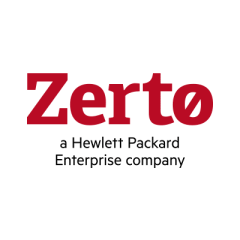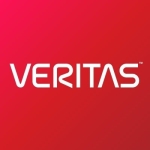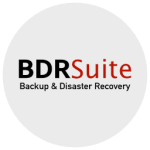What is our primary use case?
We use Zerto for DR purposes, we replicate what's critical to continue business. We replicate it from our headquarters to another state, a DR site. If something happens to the headquarters where we are located we could run the continued business from the DR site with Zerto.
How has it helped my organization?
It improved the way we function because we know that in the event of a disaster, we can easily recover our state of being in a rather quick amount of time. If there's malware, for example, we can go back to a point in time, up to five seconds before the malware started, and start production from that point on, undoing all the damage that the malware did. The ability to do that is a very good feature. It has replication and DR, but at the same time, if something happens with malware and it compromised your backups and compromised your offsite remote copies, you have that third option of saying, "We'll go to Zerto and see if we can reverse back from that point." That's pretty comforting.
If we need to fail back on work we would absolutely use Zerto for that. We'd probably do that first before we tried the backups. It's easier to do that than to try to look for the backups.
Zerto decreases the amount of time spent trying to get everything back online. That's the most important part. If something happened, I could just go back. It would take me around 15 minutes to locate something and launch it fairly quickly. If you're doing it from a backup, you're probably going to look for a good backup, launch it, then it's got to set up. So you're looking at an hour, maybe, if you're lucky. It's a big difference.
We once had a server and there was some software and one of the controllers in the software wouldn't boot up and we did not have a copy. It was a brand new server, so we didn't have a backup copy of it just yet. We used Zerto to go back. It was in Zerto, but it wasn't on backups yet. We were replicating it just in case and we used that to restore the server back. I called support who walked me through it fairly quickly. The whole thing took around 15 to 20 minutes. It was easy. If we had used a different solution, it would have taken us an hour or maybe two. We would have needed to find the backup and then mount it. We would then launch code or a bunch of series of Wizards. Zerto is always running so if we need to get something, we just highlight, and then we go to more, and whatever we want to do, it's right there. We don't have to turn it on. We don't have to get it going. It's always running. Backups are in a stopped state, so we would have to get it going first, then look for something, then mount it, and then do whatever we're going to do. There are four steps there, versus with Zerto where it's, "Oh, it's in this VPG," go to more, it gives you all the actions you could do, clone, delete, copy and you just do it.
Zerto has reduced the number of staff involved in data recovery because it's only two people who manage the Zerto platform. It's mostly me. I do about 80% to 90% and then 10% is my supervisor. He's more into the meetings anyway. We require two people.
What is most valuable?
The replication is the most valuable feature. It's almost like a tape recorder. You can rewind if you need to, if something bad happens. You can rewind the tape and your production begins where your tape left off. Where you want it can be replayed for such a purpose.
Zerto is very good at providing continuous data protection. For replication purposes, it's definitely better than Veeam. Veeam doesn't do as good a job as Zerto does when it comes to replication. The other alternative would be to just have backups somewhere. But even with backups, you lose a lot of time because you have to set it all up. With Zerto, you failover, you just click a couple of buttons and you run from the other location.
It's very easy to use. Every morning I go into the dashboard and I can tell the health of the VPG groups. If there's a problem or anything, I'll see it in the active alerts. So the dashboard is pretty simple. There's a status that tells you if the RPOs are falling behind, or from what you set it to, there's a reminder that tells you when to do the failover test. I like that. If I'm going to add a server to a VPG, I just go to the VPG section of the menu, find our group, select it, and then edit it, go to VMs, and there it is. It gives it to me side by side. It tells me what is unprotected on the left, and then this is protected on the right. I can move from unprotected state to protected state or I can remove something that's in a protected state to an unprotected state. It always tells me at the dashboard from the bottom, how many licenses I have, and how many I'm using. I don't go over my license count where I might not be protected. It's pretty easy.
We've never had a situation where we had to go to Zerto for downtime. It's just protection, but we haven't had the situation where we've had to failover. Hopefully, we never do. It's like car insurance. You want car insurance, but you don't want to get into an accident.
What needs improvement?
The improvement that I would like to see is a little bit easier product knowledge, things like that. It's getting a lot better than it was before because it's not as old of a product as Cisco, but if you look for something like Cisco routing and networking, you'll find millions of articles out there and it's everywhere. It's prolific. So with Zerto, you have to find it within the Zerto application. Hopefully, as they grow, it'll be more out there on the net. Same thing with Microsoft. If you look for a problem with Microsoft, you're going to find millions of articles on it, maybe it's just because they've just been around for so long. I'm hoping that one day Zerto is just as prolific and can be found everywhere.
For how long have I used the solution?
I have been using Zerto for two years.
What do I think about the stability of the solution?
Zerto is very stable. There are very few errors. I just don't see any errors. The only one time we had an issue with it was with journals. We were filling up too much and we called support and they walked us through it. We found out that we were replicating a temporary drive and it's not good practice to back up temporary drives because they constantly change when it's not even necessary. So we removed the temporary drives and we never had that problem again.
What do I think about the scalability of the solution?
I'm a system administrator.
If you were doing recovery from a backup, you'd probably want at least two people looking through backups quickly to speed up locating them. You might need somebody to set up a mount server to mount the backups on. You can get away with three people but you might need three depending on how urgently you want to get going. It depends.
For DR management, if I was with another solution I would require more people. If you have a Dell EMC, they have storage administrators that that's all they do. And so that's a dedicated position. I'm a system administrator, which means that I do the storage, I deal with the servers. It allows me to do a lot of things, not just one thing.
Scalability is excellent. We have one here, we have the one there. I know we could add another ZVM, another location, or another DR site if we wanted to. That's been in the talks for a long time. It's on pause now because of COVID-19. But if at some point we decide that we want to add a secondary DR site that is geographically opposed to where we are now, then we could replicate one, two, and three at the same time. It's got good potential to be increased.
We have about 20 to 50 servers in Maryland and we replicate all the critical, essential ones that would be required to continue to run business to North Carolina. Everything is virtual, which helps us out. We have one Zerto virtual manager here, we have a Zerto virtual manager in North Carolina, and we do failover every six months just to make sure that it works. As a matter of fact, we have a failover test coming up that we have a test of failover to make sure that it's continuing to work.
How are customer service and technical support?
The support is very good. I've used them before. When we had the journal issues, it was easy to resolve the issue. We've done upgrades on the versions and they've always been very responsive. If I do a P1, which is critical or they do a P4, which is just information, they respond fairly quickly.
Which solution did I use previously and why did I switch?
We've used Veeam for backup. Before Veeam, we used Unitrends, which is even worse. It didn't work.
Zerto's good for DR replication. I don't think anybody does it better. Veeam is good for short-term backups. It doesn't do well with the replication part at all - even they say it. I've spoken to reps who agree and say that Zerto's better at it than they are.
How was the initial setup?
The initial setup was pretty straightforward. You set up a ZVM here and there and tell it the direction you want it to replicate in to. You can create an EPG to the journal that goes attached.
Because we were setting it up in the middle of things, it took around one month.
We did have a strategy of how to put those servers here, build servers there, and IP addresses we were going to assign to it. We did have some sense of where we were going to put things.
What about the implementation team?
We used the reseller who helped us with the deployment. They were great. It was easy. No problems with it.
We bought it through CTI.
What was our ROI?
I think we do see ROI. We need a defensive posture to protect ourselves.
What's my experience with pricing, setup cost, and licensing?
Pricing is okay. You don't use Zerto to put all of your servers in Zerto. The purpose of it is you take what is absolutely critical to continue running your business, whatever servers are in your business continuity plan. Those are the ones that you put in Zerto. Then you'll be fine in the licensing because if you just buy 200 licenses or 300 licenses and you're backing up a utility server or any server that's not essential, then your bosses are going to think you're spending too much money. But if you just zero in on what's critical and back that up with licensing, you'll be fine.
There are no additional costs that I'm aware of. We have the licensing fees that come up and then that's it, as far as I know.
Which other solutions did I evaluate?
We had a couple of proposals. We had the one from Veeam but we realized really quickly that it doesn't work for replication. The other alternative would have been to save the backups to the offsite location, have servers there, and load backups at the server location. That takes a lot of manual labor so we decided Zerto would the best option.
What other advice do I have?
We don't know what we're going to do for long-term retention. We use it for DR purposes only. But we are still looking at the long-term retention and what to do with it.
I would say if you're looking for true DR protection with minimal recovery time, then Zerto is probably going to be the one. If the objective is minimum time to recover, then this is the product you need to buy. If you want to spend time trying to set up again in a disaster, then there are a lot of things out there and for ransomware too. We have about a five-minute window where once data is compromised beyond five minutes, it's useless. So we need to keep the window to about five minutes. Because of that, Zerto is really going to have to do that at this point in a cost-effective way to recover.
I like Zerto. You learn different things as you use it more and more, so you become more competent with it as you use it. I know that if you do have an issue, as with most other vendors, the easiest solution is to provide the logs as soon as you can, and then they're better prepared to respond if you do it that way.
I would rate Zerto a nine out of ten. Nothing is perfect.
Which deployment model are you using for this solution?
On-premises
Disclosure: PeerSpot contacted the reviewer to collect the review and to validate authenticity. The reviewer was referred by the vendor, but the review is not subject to editing or approval by the vendor.


















